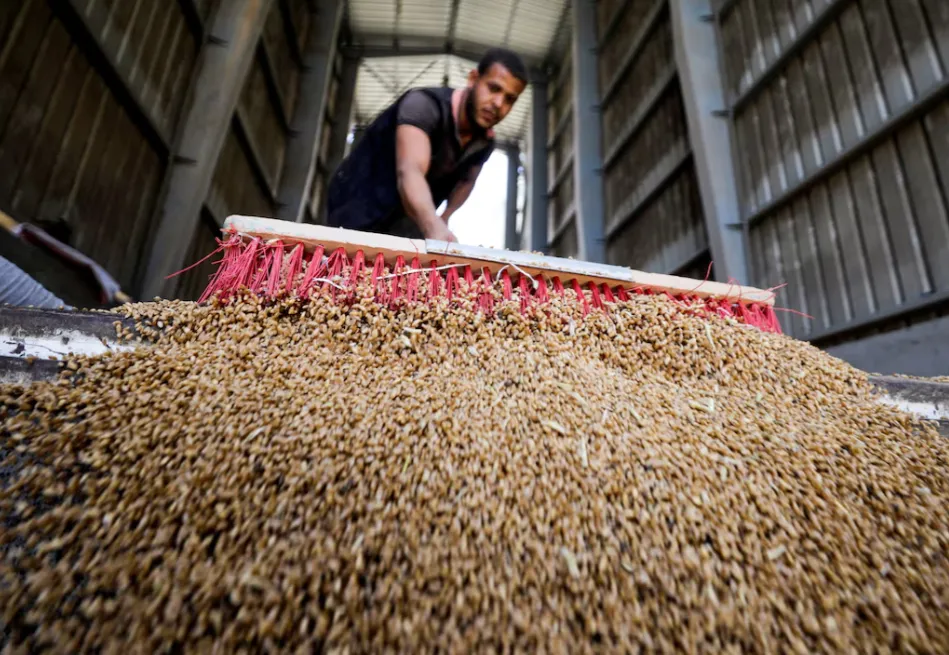Egypt could significantly reduce its wheat imports this year as domestic procurement is expected to reach up to 5 million metric tons, compared to 3.5 million tonnes last year, Supply Minister Sherif Farouk told reporters on Monday.
“Increasing wheat procurement is a welcome development. We could exceed 4 million tons, even reach 5,” Farouk said.
The figure is consistent with previously announced target of buying between 4 and 5 million tons from local farmers this season, compared to 3.4 million in 2024.
While calling the rise in procurement promising, Farouk said it was “still not satisfying for us”, and predicted further improvements in the coming years.
Egypt, one of the world’s largest wheat importers, consumes 9.5 million tons annually through the supply ministry to support subsidised bread. Wheat forms the backbone of the subsidised bread program, a lifeline for over 69 million citizens.
Official data seen by Reuters shows Egypt bought around 3.5 million tons of wheat as of Monday since the beginning of the local harvest in mid April, which is set to continue through mid August, against 3 million tons in the same period last year.
Greater self-sufficiency, he added, also allows Egypt to time international purchases strategically.
“We’re not forced to buy during peak periods in exporting countries. We can choose the right time and price.”
Farouk also noted ongoing negotiations with Bulgaria, Egypt’s fourth-largest wheat supplier, to expand cooperation, whether through direct deals with the military-linked state agriculture commodities importer, Mostakbal Misr, or through a barter system, although negotiations are still ongoing.
On wheat reserve levels, he dismissed concerns, saying: “Any increase or decrease in reserves is part of our strategy to secure the best prices it’s about storage capacity and economic logic.”
He also said that Egypt’s strategic reserves of wheat are sufficient for 6 months, while reserves of vegetable oils are sufficient for 4 months, and sugar for 12 months.



